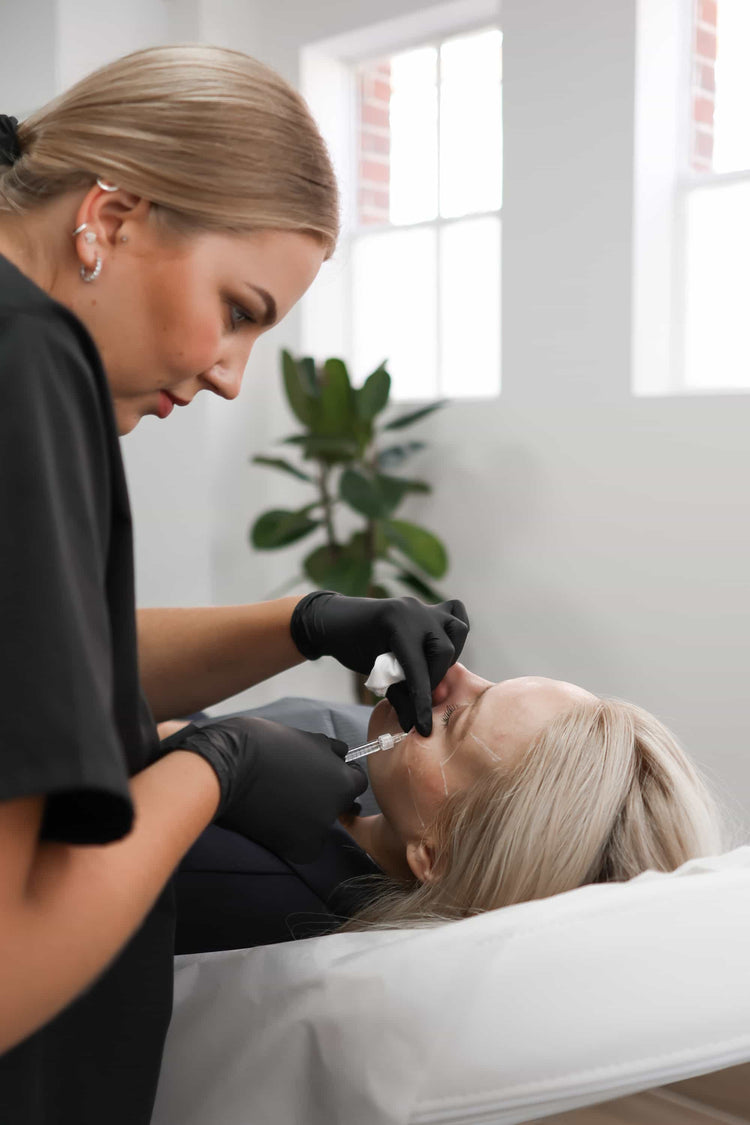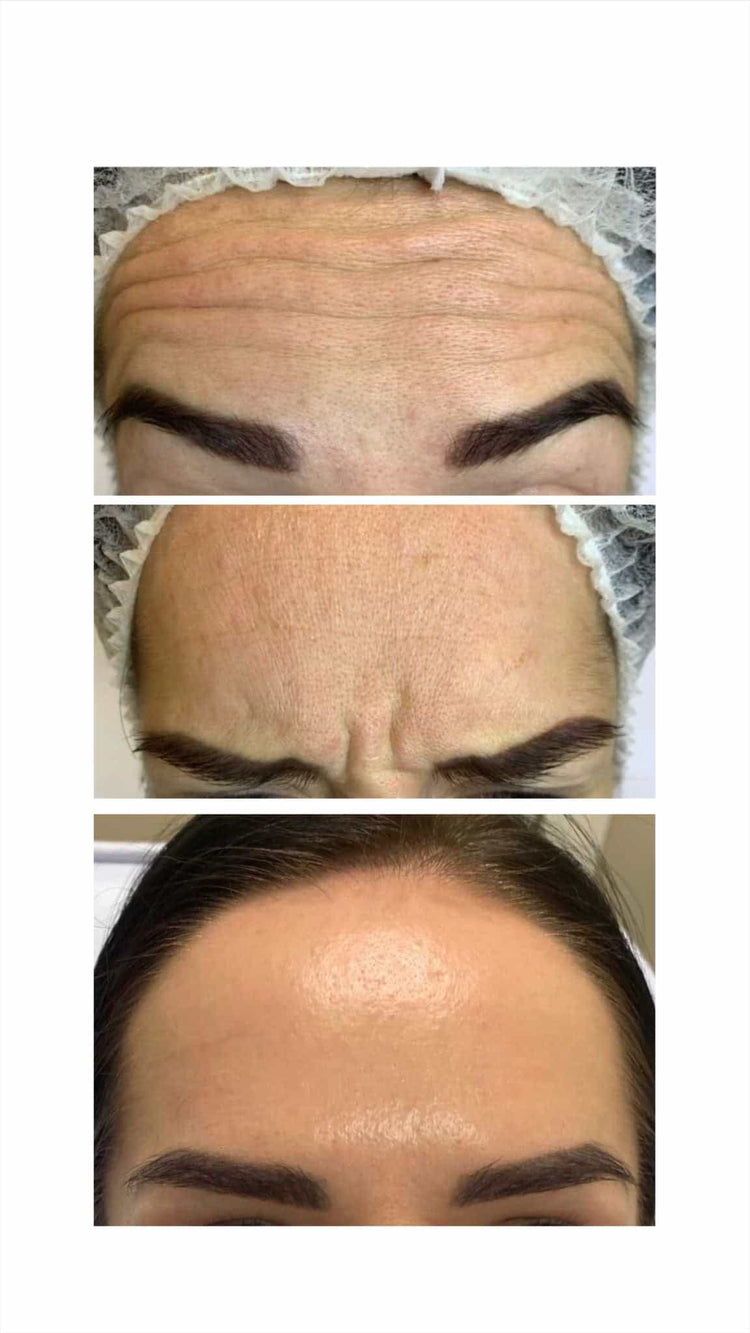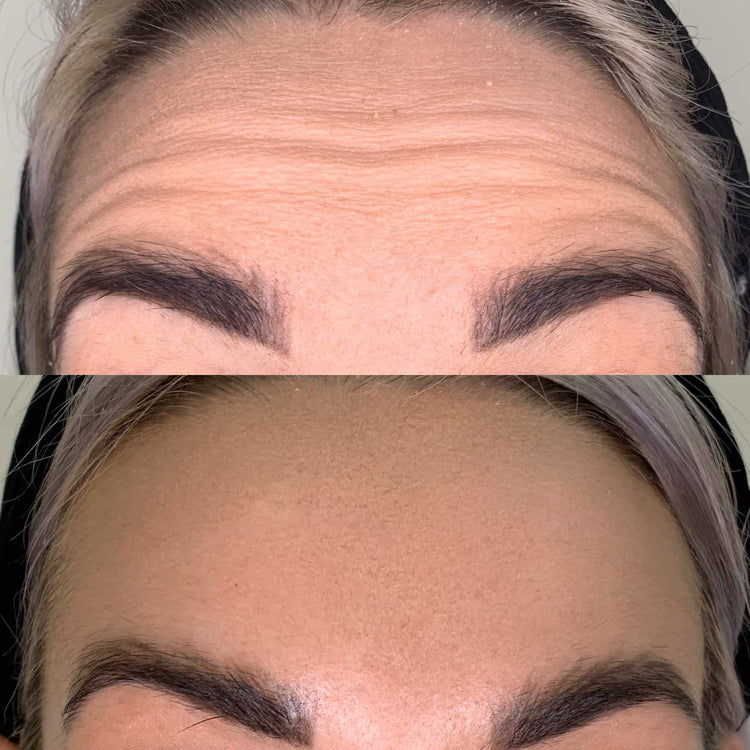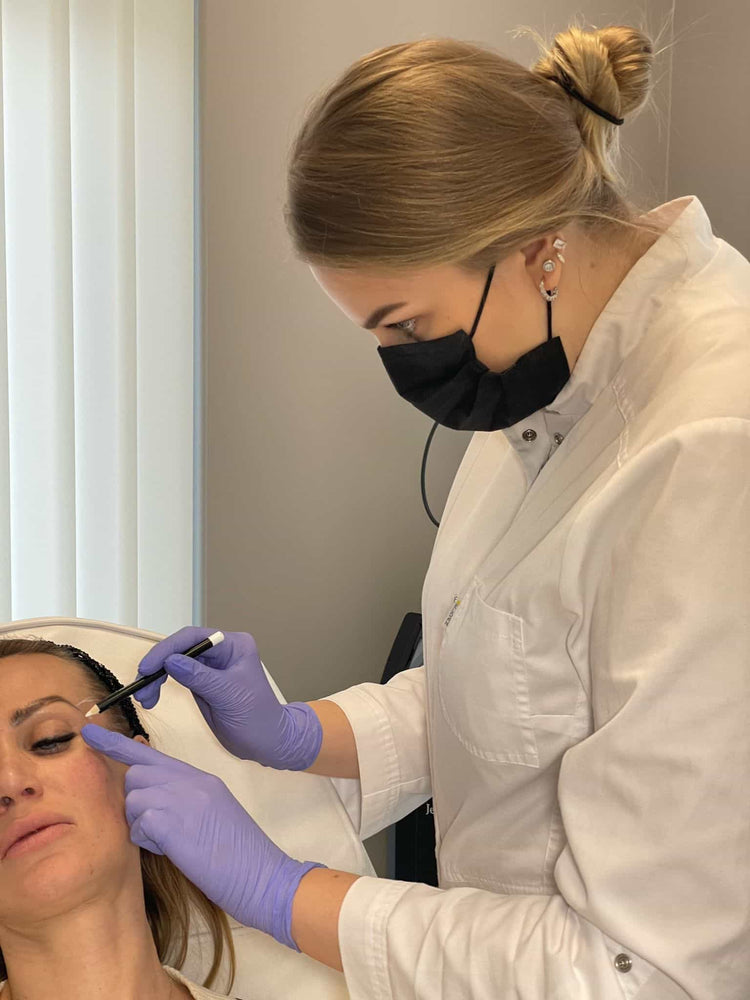Botox for Acne Treatment
Botox has gained popularity for various cosmetic applications, but its potential benefits extend beyond wrinkle reduction. In recent years, it has emerged as a promising treatment option for acne in areas like Knaphill, Surrey.
What is Botox?
Botox is a purified form of botulinum toxin type A. This neurotoxin works by temporarily blocking nerve signals to muscles, causing them to relax and reducing the appearance of wrinkles.
How Does Botox Work for Acne?
While Botox is primarily known for its wrinkle-reducing effects, it can also be effective in treating acne. Botox achieves this by targeting the overactive sebaceous glands that contribute to oil production, a key factor in acne development. By temporarily paralyzing these glands, Botox reduces their ability to produce excess sebum, leading to fewer breakouts.
Benefits of Botox for Acne in Knaphill
Knaphill residents seeking innovative acne solutions may find Botox to be a valuable treatment option. Botox works by targeting the underlying cause of acne – overactive sebaceous glands. These glands are responsible for producing sebum, an oily substance that can clog pores and lead to breakouts.

By temporarily paralyzing these glands, Botox helps regulate sebum production, reducing the amount of oil that contributes to acne formation. This can result in a significant reduction in the frequency and severity of acne lesions.
Procedure and Aftercare
Botox for acne treatment is a relatively new approach, but it shows promise in helping to manage acne breakouts, particularly in areas like Knaphill, Surrey.
- The procedure involves small injections of Botox into specific areas of the skin that are prone to acne.
- Aftercare instructions typically include avoiding strenuous activity and touching the treated area for a few days.
- It’s important to consult with a qualified medical professional who specializes in dermatology or aesthetics to determine if Botox is right for your skin type and acne severity.
Potential Risks and Side Effects
Botox has emerged as a potential treatment option for acne, particularly in areas like Knaphill, Surrey. It works by targeting overactive sebaceous glands that contribute to excess oil production, a primary factor in acne development.

However, like any medical procedure, Botox injections come with potential risks and side effects. These can include bruising, redness, swelling, and tenderness at the injection site. In rare cases, more serious complications such as muscle weakness or drooping eyelids may occur.
It’s crucial to consult with a qualified medical professional experienced in Botox treatments to assess your suitability for this procedure and minimize potential risks.
Cost of Botox Treatment for Acne in Knaphill, Surrey
Botox has emerged as a potential treatment option for acne, particularly in areas like Knaphill, Surrey. It works by targeting overactive sebaceous glands that contribute to excess oil production, a primary factor in acne development.
The cost of Botox treatment for acne in Knaphill, Surrey can vary depending on factors such as the extent of the treatment area, the experience of the practitioner, and the clinic’s fees. It’s best to consult with several local clinics in Knaphill to obtain personalized quotes.
Finding a Qualified Practitioner
Finding a qualified practitioner is essential when considering Botox for acne treatment.
Choosing the Right Clinic
Look for practitioners who are board-certified dermatologists or plastic surgeons with experience administering Botox specifically for acne treatment.
Check their credentials, online reviews, and before-and-after photos to assess their expertise.
Choosing the right clinic is equally important. Consider factors such as the clinic’s reputation, hygiene standards, and the comfort level of the staff.
Consultation Process
When seeking Botox treatment for acne in Knaphill, Surrey, it’s crucial to find a qualified practitioner with experience in this specific application. Look for board-certified dermatologists or plastic surgeons who specialize in aesthetics and have a proven track record treating acne with Botox.
During the consultation process, be prepared to discuss your medical history, current medications, and acne concerns in detail. The practitioner will examine your skin, assess its condition, and determine if Botox is an appropriate treatment option for you. They will also explain the procedure, potential risks and benefits, and answer any questions you may have.
The consultation is an opportunity to get a clear understanding of what to expect from the treatment and ensure that you feel comfortable and confident in choosing the right practitioner and clinic.
Alternative Treatments for Acne
Botox, best known for its wrinkle-reducing effects, is gaining traction as a potential treatment for acne. In areas like Knaphill, Surrey, individuals seeking innovative solutions for acne may find Botox to be a valuable option.
Topical Medications
Topical medications are commonly used in the treatment of acne. They work by targeting different aspects of the condition, such as reducing oil production, preventing clogged pores, and killing bacteria.

Benzoyl peroxide is a common ingredient found in many topical acne treatments. It works by killing acne-causing bacteria and drying out excess oil on the skin’s surface. It comes in various forms, including creams, gels, lotions, and washes.
Salicylic acid is another effective ingredient that exfoliates the skin, unclogging pores and preventing breakouts. It can be found in cleansers, toners, spot treatments, and masks.
Retinoids, which are derived from vitamin A, are powerful medications that regulate cell turnover, reducing oil production, unclogging pores, and preventing new acne lesions from forming. They come in prescription and over-the-counter strengths.
Other topical medications include antibiotics like clindamycin or erythromycin, which help reduce inflammation and kill bacteria.

It’s important to consult with a dermatologist to determine the best topical medication for your specific skin type and acne severity.
Oral Antibiotics
Botox has emerged as a potential treatment option for acne, particularly in areas like Knaphill, Surrey. It works by targeting overactive sebaceous glands that contribute to excess oil production, a primary factor in acne development.
While Botox is primarily known for its wrinkle-reducing effects, it can also be effective in treating acne. Botox achieves this by targeting the overactive sebaceous glands that contribute to oil production, a key factor in acne development. By temporarily paralyzing these glands, Botox reduces their ability to produce excess sebum, leading to fewer breakouts.
- The procedure involves small injections of Botox into specific areas of the skin that are prone to acne.
- Aftercare instructions typically include avoiding strenuous activity and touching the treated area for a few days.
- It’s important to consult with a qualified medical professional who specializes in dermatology or aesthetics to determine if Botox is right for your skin type and acne severity.
Oral antibiotics are sometimes prescribed as a treatment option for acne, particularly moderate to severe cases. They work by killing the bacteria that contribute to inflammation and breakouts.
- Doxycycline is a common oral antibiotic used for acne. It helps reduce inflammation and kill bacteria within the pores.
- Tetracycline is another oral antibiotic that can be effective for treating acne. It works similarly to doxycycline, targeting bacteria responsible for breakouts.
- Minocycline is an alternative oral antibiotic that may be prescribed for acne, especially if other antibiotics haven’t been successful. It has anti-inflammatory properties and helps control bacterial growth.
Isotretinoin
Isotretinoin is a powerful oral medication used to treat severe cystic acne when other treatments have been unsuccessful. It works by reducing oil production in the skin, shrinking sebaceous glands, and preventing clogged pores.
While highly effective, Isotretinoin has potential side effects and requires careful monitoring by a dermatologist due to its systemic impact on the body. Pregnant women must avoid Isotretinoin as it can cause severe birth defects.
Laser Therapy
Botox for acne treatment is a relatively new approach, but it shows promise in helping to manage acne breakouts, particularly in areas like Knaphill, Surrey.
The procedure involves small injections of Botox into specific areas of the skin that are prone to acne. Aftercare instructions typically include avoiding strenuous activity and touching the treated area for a few days.
It’s important to consult with a qualified medical professional who specializes in dermatology or aesthetics to determine if Botox is right for your skin type and acne severity.
Botox, best known for its wrinkle-reducing effects, is gaining traction as a potential treatment for acne. In areas like Knaphill, Surrey, individuals seeking innovative solutions for acne may find Botox to be a valuable option.
Topical medications are commonly used in the treatment of acne. They work by targeting different aspects of the condition, such as reducing oil production, preventing clogged pores, and killing bacteria.
Benzoyl peroxide is a common ingredient found in many topical acne treatments. It works by killing acne-causing bacteria and drying out excess oil on the skin’s surface. It comes in various forms, including creams, gels, lotions, and washes.
Salicylic acid is another effective ingredient that exfoliates the skin, unclogging pores and preventing breakouts. It can be found in cleansers, toners, spot treatments, and masks.
Retinoids, which are derived from vitamin A, are powerful medications that regulate cell turnover, reducing oil production, unclogging pores, and preventing new acne lesions from forming. They come in prescription and over-the-counter strengths.
Other topical medications include antibiotics like clindamycin or erythromycin, which help reduce inflammation and kill bacteria.
It’s important to consult with a dermatologist to determine the best topical medication for your specific skin type and acne severity.
Oral antibiotics are sometimes prescribed as a treatment option for acne, particularly moderate to severe cases. They work by killing the bacteria that contribute to inflammation and breakouts.
- Doxycycline is a common oral antibiotic used for acne. It helps reduce inflammation and kill bacteria within the pores.
- Tetracycline is another oral antibiotic that can be effective for treating acne. It works similarly to doxycycline, targeting bacteria responsible for breakouts.
- Minocycline is an alternative oral antibiotic that may be prescribed for acne, especially if other antibiotics haven’t been successful. It has anti-inflammatory properties and helps control bacterial growth.
Isotretinoin is a powerful oral medication used to treat severe cystic acne when other treatments have been unsuccessful. It works by reducing oil production in the skin, shrinking sebaceous glands, and preventing clogged pores.
While highly effective, Isotretinoin has potential side effects and requires careful monitoring by a dermatologist due to its systemic impact on the body. Pregnant women must avoid Isotretinoin as it can cause severe birth defects.
Dr. Laura Geige specializes in natural lip filler techniques at It’s Me & You Clinic
- Who Should Not Get Lip Fillers? - November 16, 2025
- What Is Relationship Anarchy And How It Promotes Non-traditional Love - November 14, 2025
- Under Eye Filler For Eye Bags In Warlingham, Surrey - November 9, 2025
